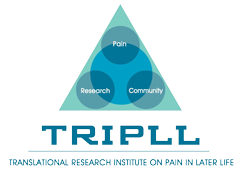Age Differences in the Joint Influence of Emotional Context and Temporal Discounting on Pain Management Decisions
Investigator: Corinna Löeckenhoff, PhD; Assistant Professor, Department of Human Development, Cornell University
Compared to younger adults, chronic pain in older adults is systematically undertreated (Pitkala, Strandberg, & Tilvis, 2002) and leads to lower quality of life, higher functional disabilities, and – ultimately – higher healthcare costs (Brennan, Carr, & Cousins, 2007). In addition to underdiagnosis and environmental barriers, age differences in pain management preferences may be a contributing factor (Sale, Gignac, & Hawker, 2006). Decisions about pain management are characterized by the need to weigh immediate and delayed effects as well as costs and benefits against each other. This makes them susceptible to age-related emotional biases which were previously found to affect health-related decision making (Löckenhoff & Carstensen, 2007, 2008). However, such effects have not been studied in the pain management context. It also remains unclear how emotional biases interact with age differences in the tendency to discount temporally delayed consequences. This pilot project aims to address these questions by
(1) experimentally testing the joint influence of temporal discounting and emotional context on pain management preferences in healthy younger and older adults;
(2) extending these findings to a diverse sample of older adults living with chronic pain;
(3) determining the extent to which individual differences in personality, mood, health beliefs, and cognitive abilities contribute to such effects.
